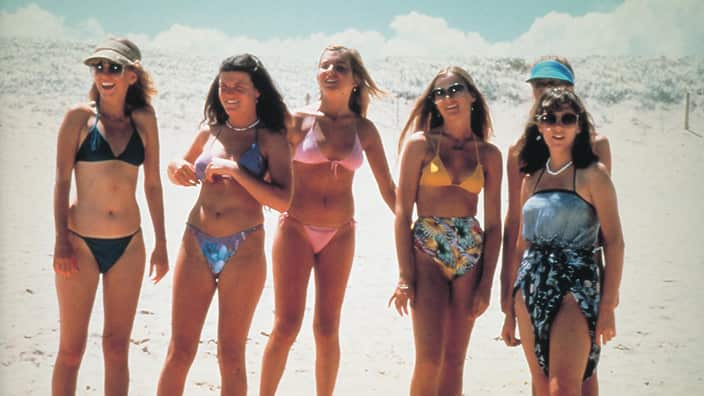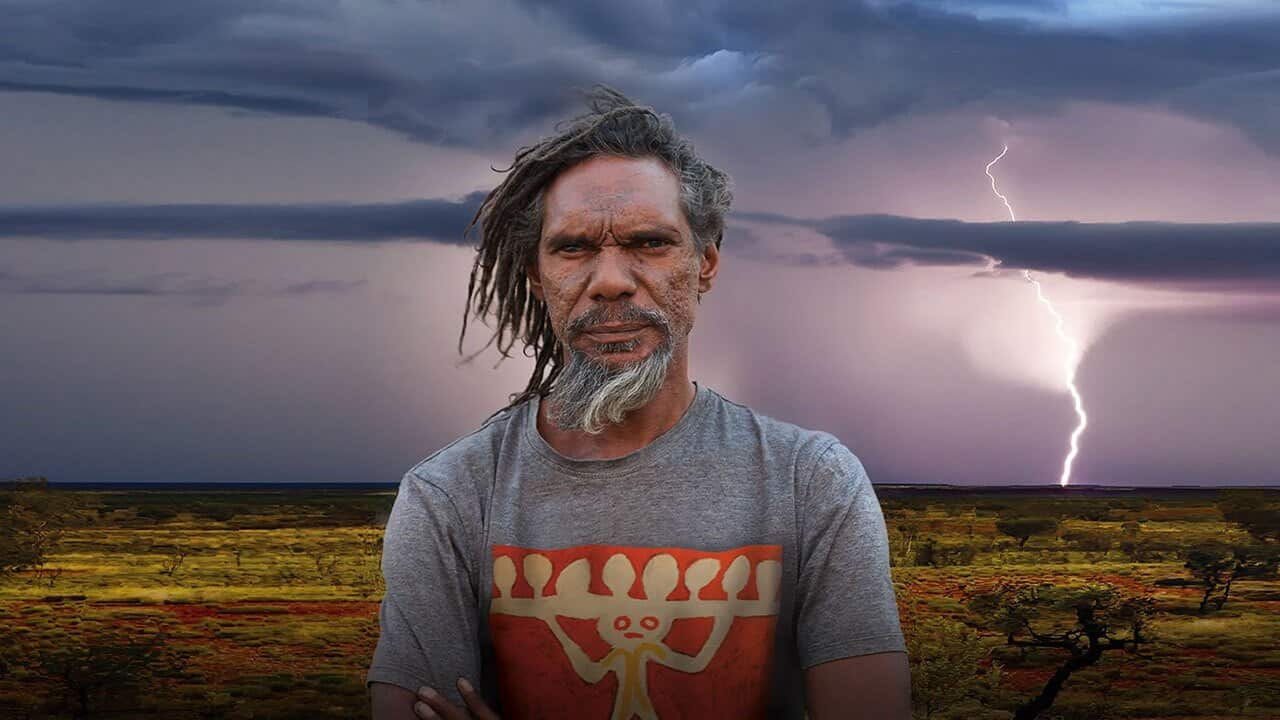It’s adapted from a great teen novel – written by teenagers themselves
When Gabrielle Carey and Kathy Lette published their autobiographical novel in 1979, it caused a scandal for its frank depictions of underage sex (the main characters were 13 in the story), pregnancy, drug use and bad language. But teenagers devoured it and the best-selling book later became a classroom classic for telling it how it was – and maybe still is for some. Released two years after the book, the film captures the raw honesty and bold humour of the source material.
The Australian beach as sexist paradise
The opening scene reveals Sydney’s Cronulla Beach on a stinking hot day. The sand is crawling with skimpy-clad sunbakers and the water swarms with surfboards. Two teenage girls, Debbie (Nell Schofield) and Sue (Jad Capelja), make their way from one end of the beach (‘Dickheadland’ where all the social rejects reside) to the other, where they hope to ingratiate themselves with the Greenhills Gang. Here, surfie boys are watched and waited on by their adoring, subservient girlfriends. Debbie’s voiceover explains this complex social microcosm, and anyone who’s ever been a teenager will identify with the girls’ ridiculous and tragic urge to belong.
A male subculture depicted from the female perspective
Director Bruce Beresford and cinematographer Don McAlpine had previously worked together on a number of Australian films depicting blokey bad behaviour and the Aussie vernacular (The Adventures of Barry McKenzie, Don’s Party and The Club), but here their unflinching eyes and considerable filmmaking skills were combined with female scripting (by Margaret Kelly) and producing (Joan Long), not to mention strong young female leads who have our sympathies right from the very first glimpse of their high-waisted shorts and nappy-tied sarongs.
Salty Ocker lingo
Puberty Blues is chockers full of quotable, and sometimes cringe-inducing, dialogue: ‘fish-faced moll’, ‘rooting machine’ and ‘you’re dropped’ are just some of the memorable lines uttered in a script that’s full of unashamed 1970s slang. Whether you’re ‘busting to go to the dunny’ or ‘melting your tits off’, it’s hard not to crack a smile at this rude language. Remember that teenage urge to shock the adults? It’s here.
Girls on board – a triumphant female surfing scene
‘Chicks don’t surf!’ the girls are told in no uncertain terms, but after experiencing the horrors of the chauvinistic gang, our heroines finally defy the rules and buy themselves a board, taking to the waves with giggles and falls. The final scene in which Debbie surfs a wave in her tiny yellow bikini, with the disbelieving gang looking on in grudging admiration, is surely one of the finest feminist moments in Australian cinema and guaranteed to bring a surge of rebellious pride to any female heart. It’s no wonder this is a film that still inspires female surfers. As actor Nell Schofield, a former teen surfing champion who did all her own surfing in the film, asserts in her wonderful Currency Classics monograph on ‘Pubes’, as she affectionately calls it: ‘chicks bloody well can surf’.
Watch 'Puberty Blues' at SBS On Demand

Source: SBS Movies
Share




